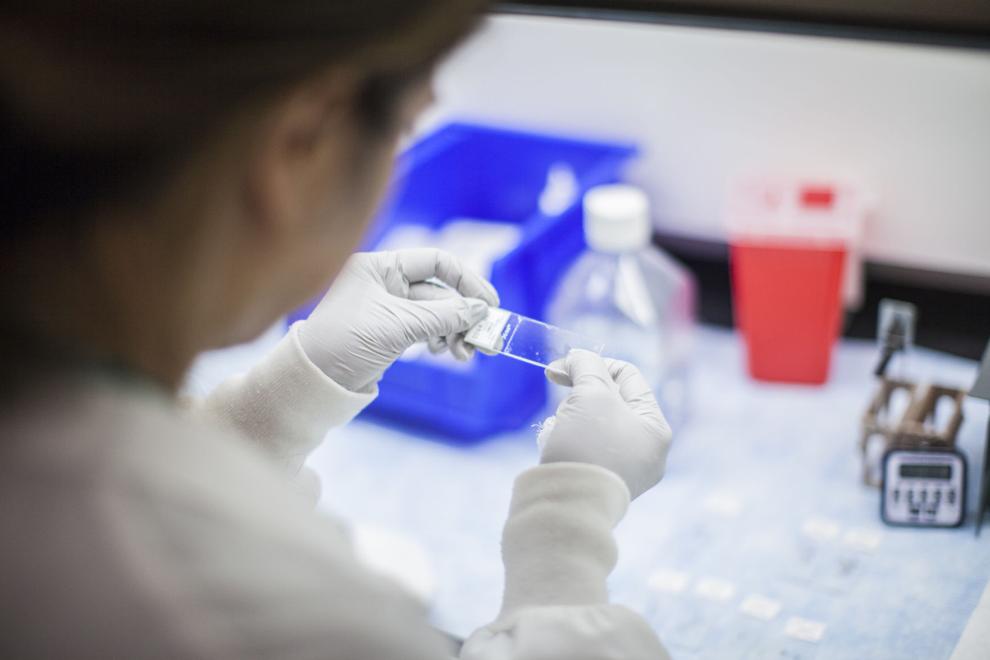09 Dec Exact Sciences test may let more breast cancer patients skip chemo

Oncotype DX Breast Recurrence Score tests are processed in Exact Sciences’ lab in Redwood City, California.
With help from a test from Madison-based Exact Sciences, tens of thousands more breast cancer patients may be able to safely forgo chemotherapy, according to a study published this month in the New England Journal of Medicine. The study, called RxPONDER, was led by the independent SWOG Cancer Research Network and sponsored by the National Cancer Institute.
The results further an ongoing effort to replace a “one-size-fits-all approach” with cancer treatment personalized to each patient and tumor, said lead author Dr. Kevin Kalinsky, a SWOG investigator and director of the Glenn Family Breast Center at the Winship Cancer Institute of Emory University in a press release.
Since 2007, studies have shown that the Oncotype DX Breast Recurrence Score test, which analyzes 21 genes in breast cancer tumors, can be used to assess not only the likelihood that a patient’s cancer will recur, but also the likelihood that the cancer will respond to chemotherapy. That information can save patients from undergoing the treatment — and its harsh side effects — unnecessarily.
“Chemotherapy is not without toxicity,” said Dr. Richard Baehner, chief medical officer of precision oncology for Exact Sciences. Common side effects include hair loss and digestive problems. In rare cases, patients experience “lasting toxicity,” including numbness or tingling in their hands or even secondary, chemotherapy-induced cancers.
The results of the RxPONDER study, presented Wednesday at the San Antonio Breast Cancer Symposium, expand the number of patients who can safely avoid chemotherapy. The results were first released in December 2020 and have since been updated and peer-reviewed.
Researchers evaluated more than 5,000 women at more than 600 institutions around the world whose breast cancer had already spread to their lymph nodes. The patients, who all received breast-conserving surgery as appropriate, were randomly selected to then receive either chemotherapy and hormone therapy, or hormone therapy alone.



